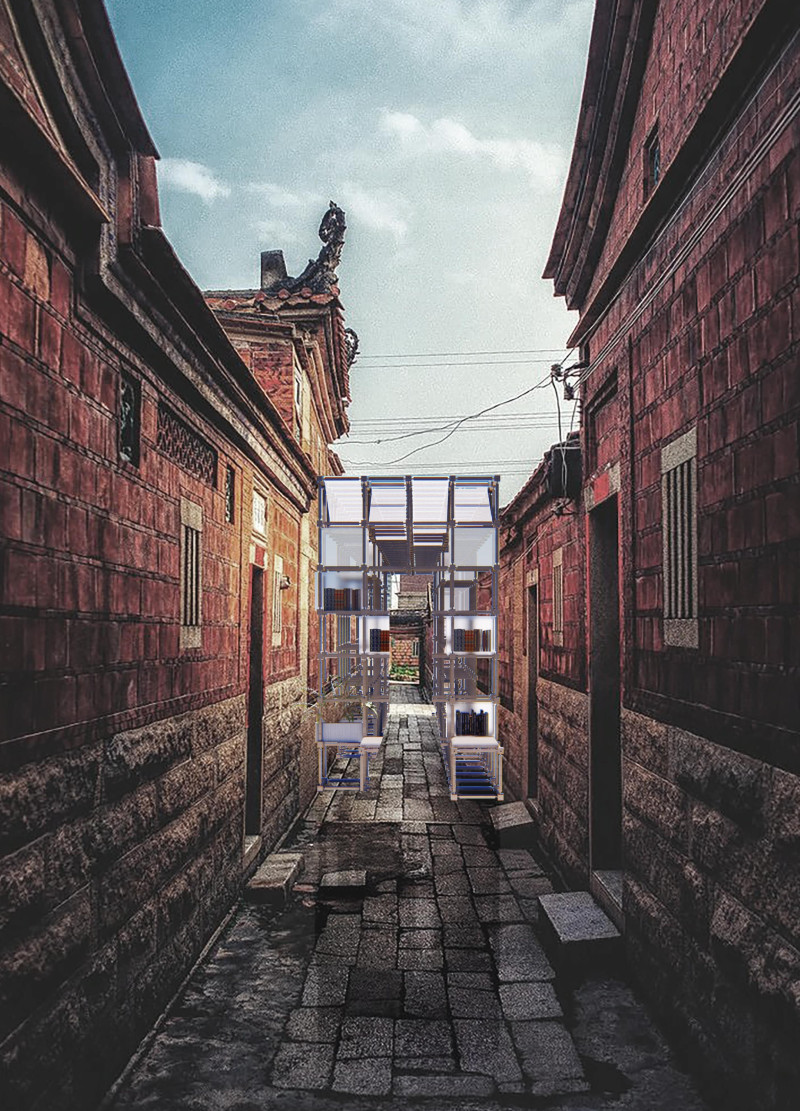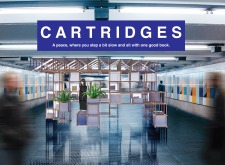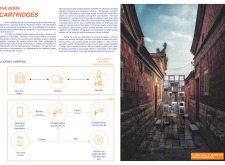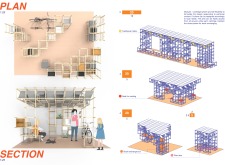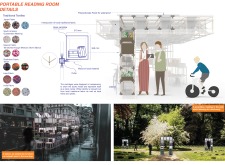5 key facts about this project
The Book Cartridges project reimagines the library by placing it in a modern context that encourages community engagement and easy access to literature. The design functions as a modular reading space, aimed at promoting interaction among residents while offering innovative methods for borrowing and exchanging books. Flexibility is a core principle, allowing the environment to adapt to various reading and learning needs.
Community-Centric Design
At the center of the design is the 'Book Cartridges' system, which operates much like an ATM, enabling people to borrow and exchange books effortlessly. This approach makes literature more accessible on a personal level and encourages social connections within the community. Each cartridge is designed to be portable, allowing individuals to transport books easily throughout the urban area.
Modular Configuration
The layout uses a grid modular system that maximizes adaptability. It includes shelving, furniture, and shaded areas that can create different reading environments based on local requirements. Open accessibility is a vital feature, making it easy for users to enter and navigate the space. This design fosters a welcoming atmosphere where exploration and engagement with literature can thrive.
Cultural Integration
Cultural textiles play a significant role in the design, enhancing the sense of place and identity. Using materials like wood or local materials along with polycarbonate panels for waterproofing, the structure balances functionality and visual appeal. Traditional fabrics, such as Japanese textiles and Guatemalan weaving, add depth by bringing local heritage into the experience, reinforcing connections among community members.
The design focuses not just on practical use but also on creating a sense of belonging. The cartridges are transparent, allowing users to see the contents inside. This openness invites interaction and exploration, leading to a lively atmosphere that encourages learning and conversation. Each detail contributes to a space that is both functional and enriching.


